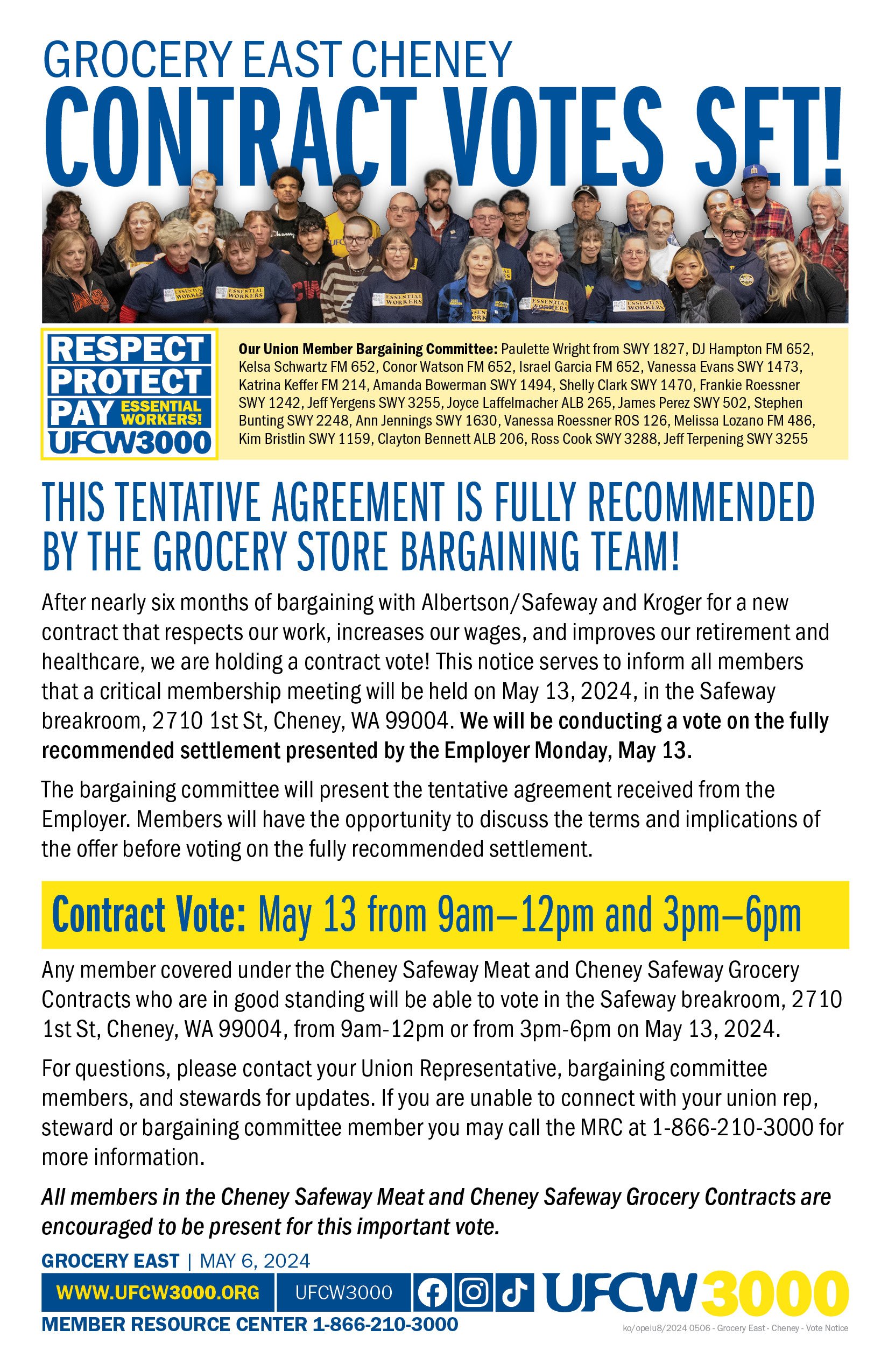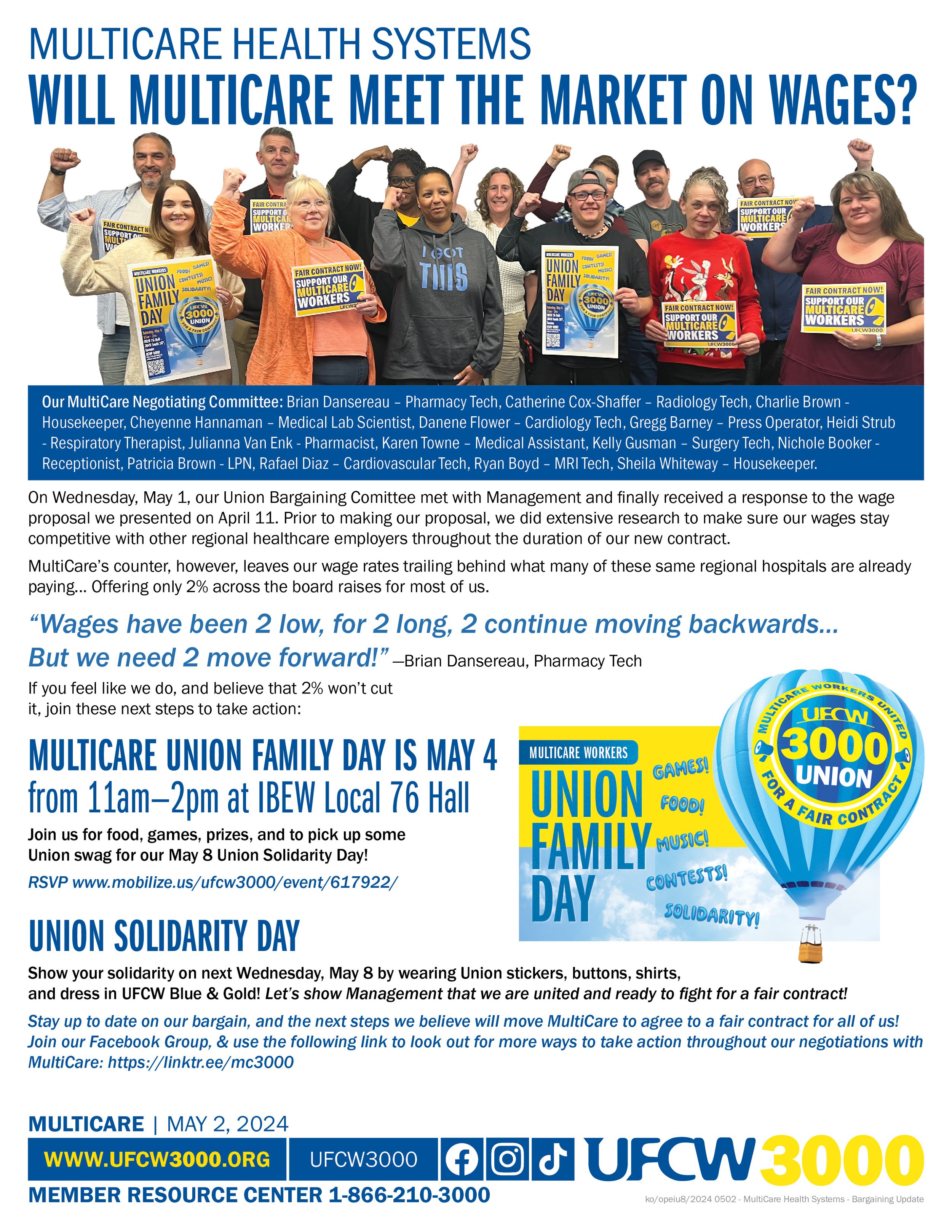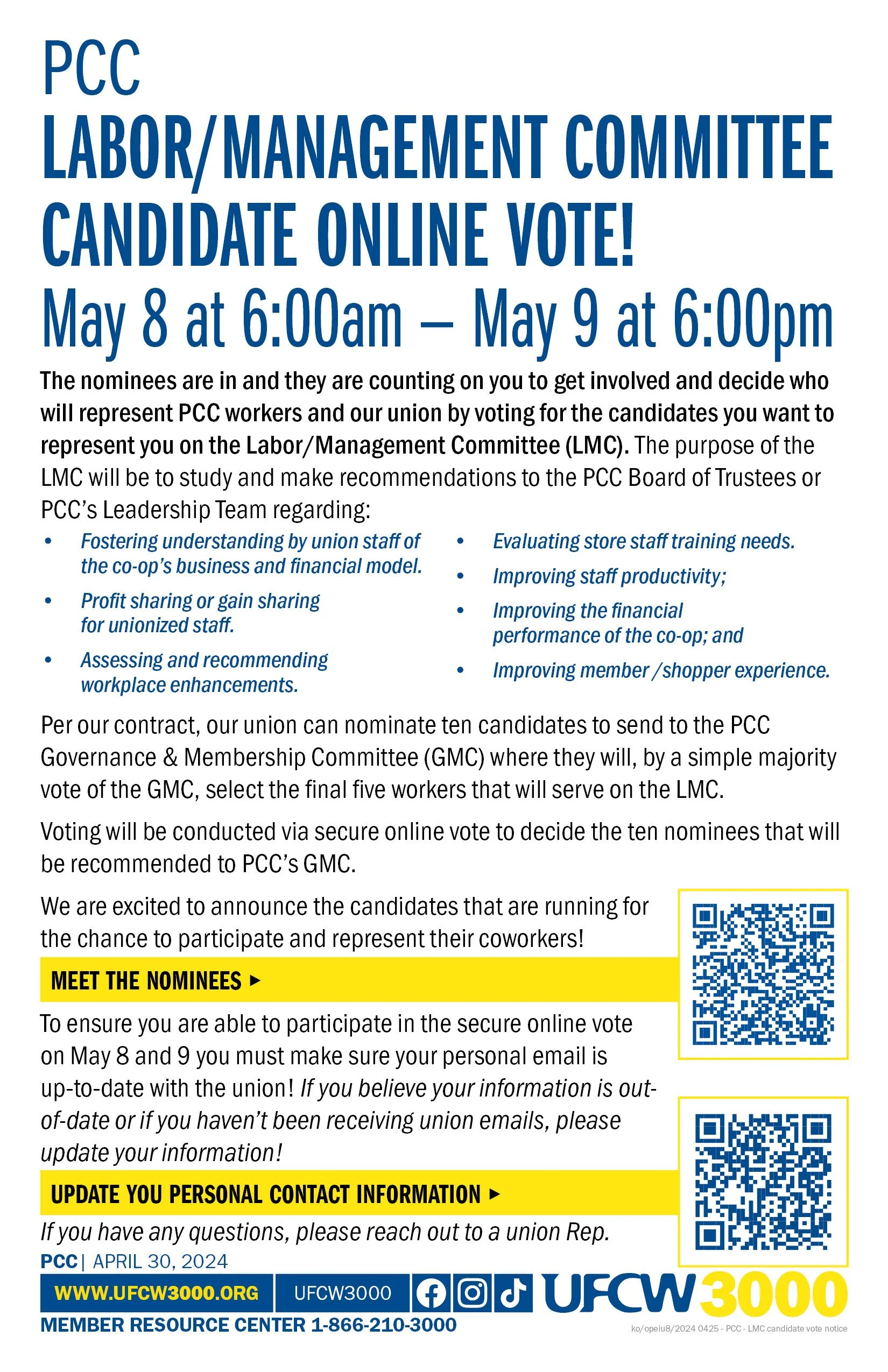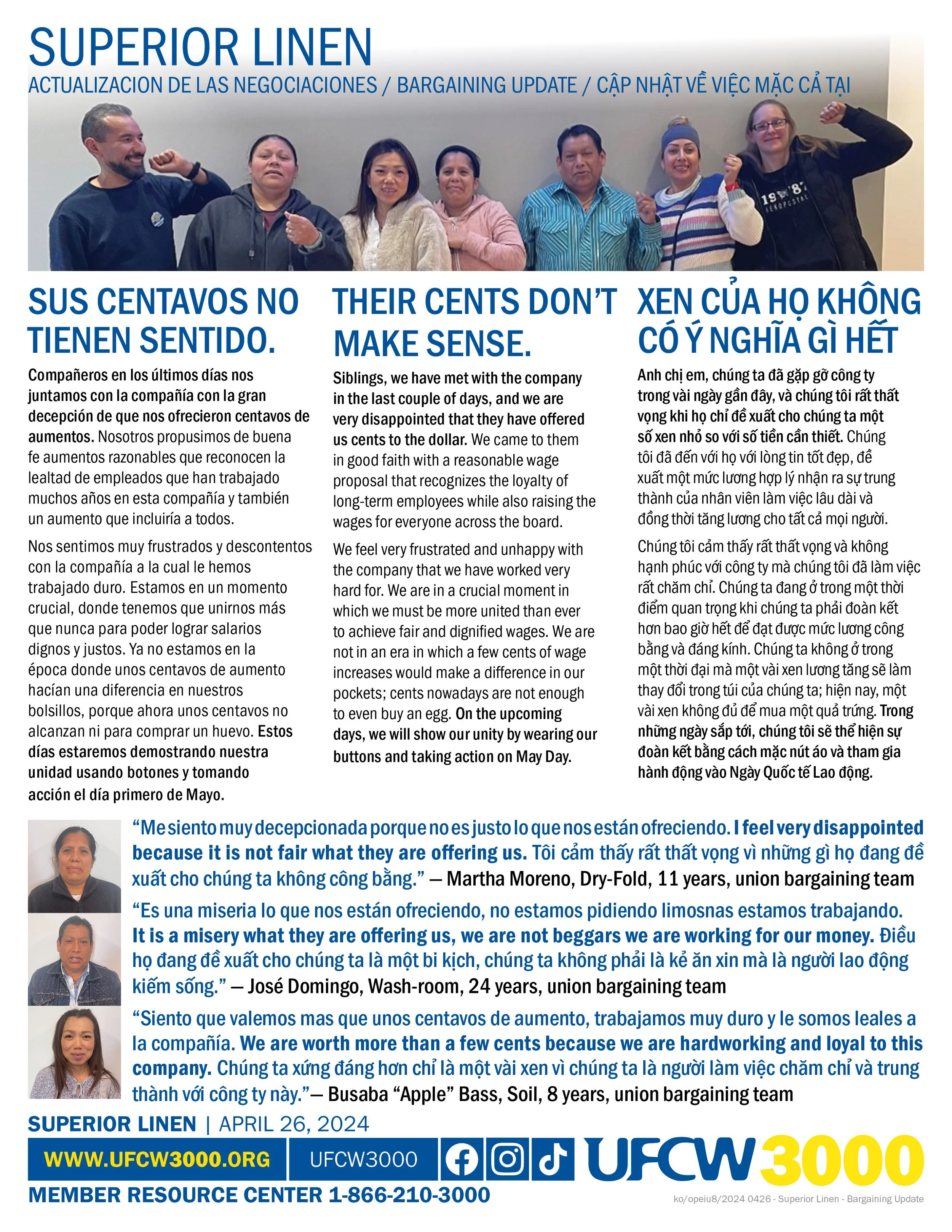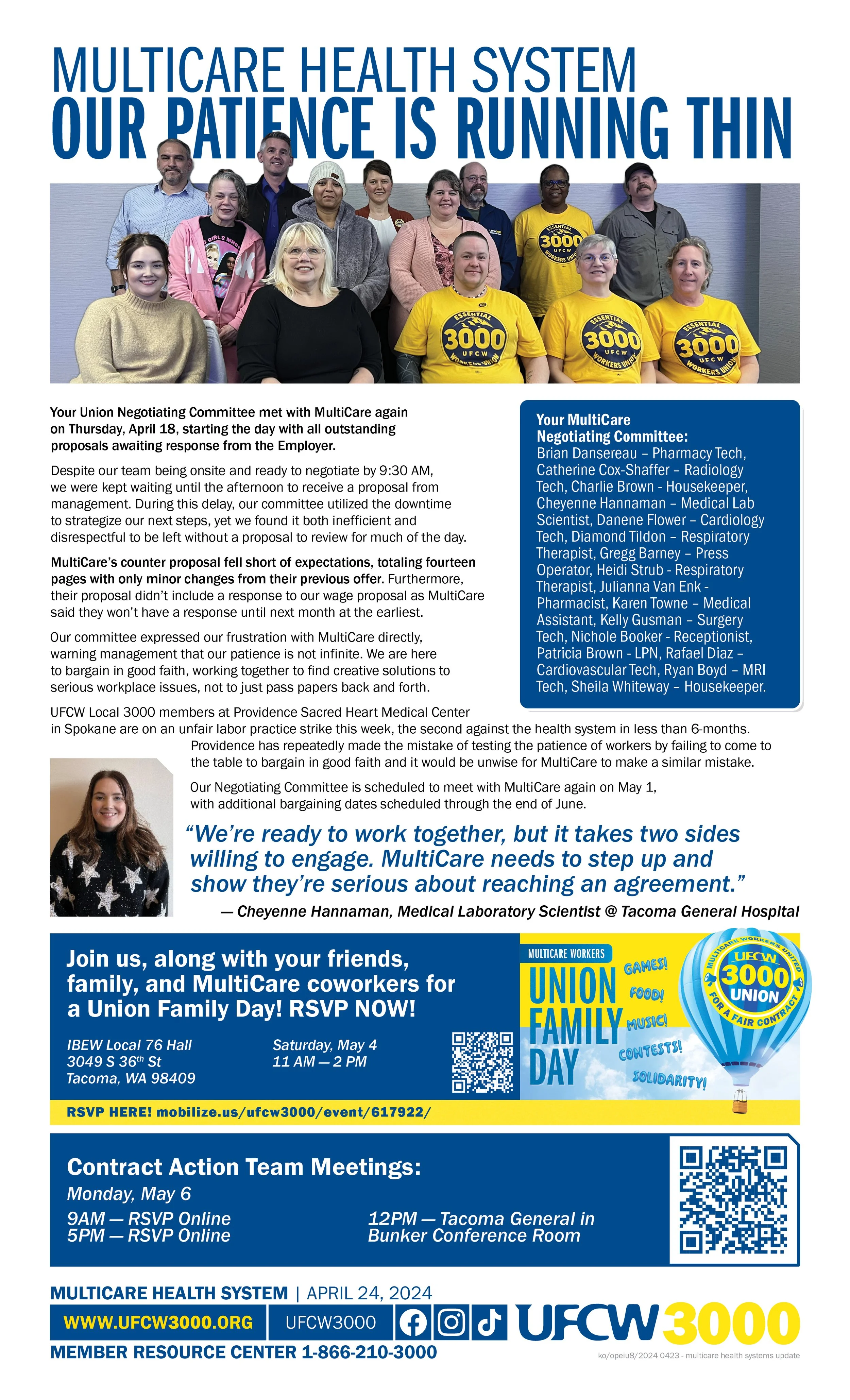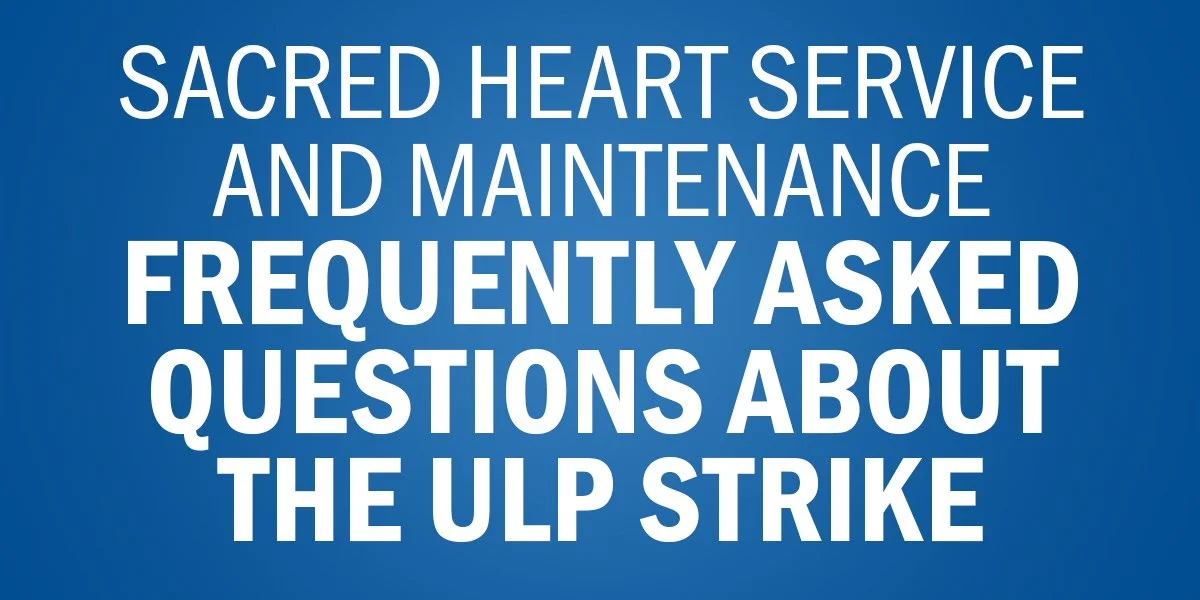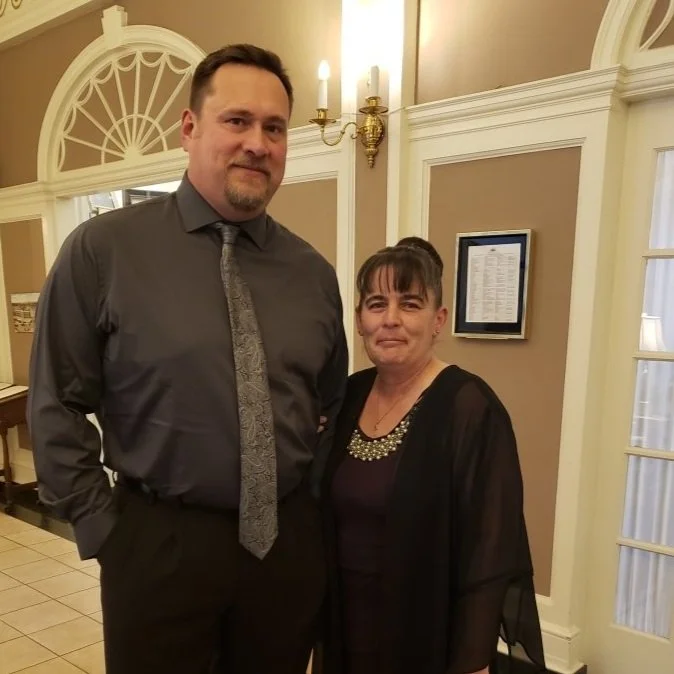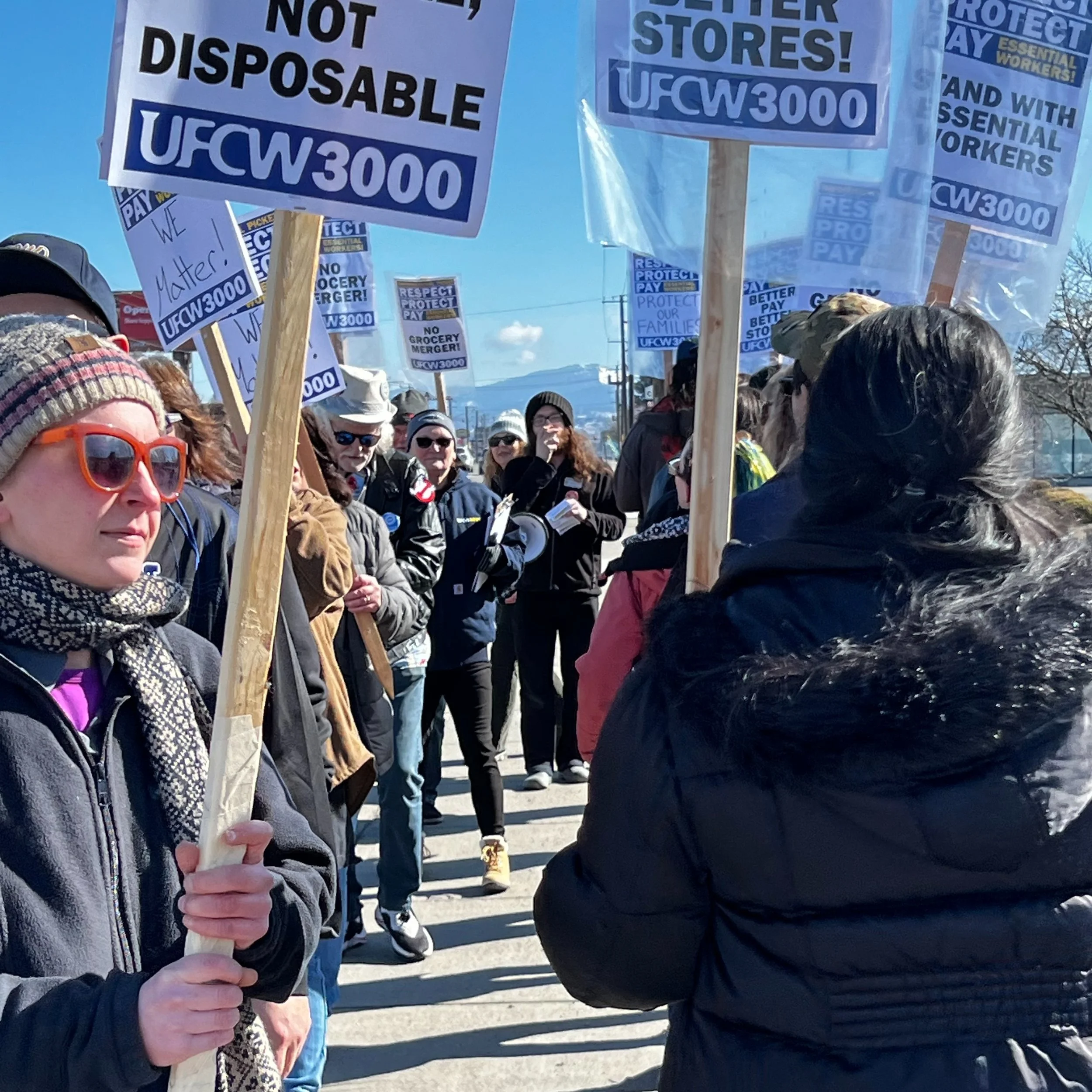UFCW 3000 Member Story: Vanessa Evans
/Vanessa Evans and her Husband
Grocery Workers on the Eastside of the Cascades are currently fighting for a fair contract from employers that have talked a great game about how much they appreciate the sacrifices that their employees have made over the last 4 years during the COVID-19 pandemic; but have yet to show it substantially in negotiations. In 2022 UFCW Locals 1439 and 21 joined together creating Local 3000 because they knew that with the continued consolidation of the power of corporate and investment capitol, solidarity would be the key to winning against huge financial interests.
As a twenty-nine year Safeway employee in Spokane Washington, who has been a shop steward for twenty of those years, Vanessa Evans has seen that consolidation over decades of work in the grocery business. From the consolidation of small to medium local chains to the merger of Albertsons and Safeway in 2015, to the current fight to stop the Kroger/Albertsons mega-merger, Vanessa has seen these employers relentlessly increase their profits at the expense of the workers who operate the business that creates those profits in the first place.
“I stepped-up to become a shop steward years ago because we needed one at our store,” says Vanessa who is now the receiving clerk at the Spokane Valley Safeway. “I love telling managers that we have union business to discuss, and that means we’re equals while we talk!” When workers put the power of the Union on the shop floor, it puts the boss on notice that “the union” is always there, not just when a union staff representative is servicing the worksite. That also happens during negotiations when workers sit directly across from management to bargain the next contract.
When bargaining began last year, Vanessa joined the bargaining committee for the first time. It was no surprise when the Employers responded to the Union’s proposals by saying that wages for Puget Sound grocery were based on a higher cost of living in that region. Vanessa and other committee members were tired of this excuse, so they compared grocery receipts from Western Washington stores to Eastern Washington stores.
It was not shocking at all that the totals were nearly identical, “When I saw that, I knew we couldn’t back down.” Vanessa and her coworkers across the Inland Northwest organized to make clear how big of a fight these employers face if they do not recognize how “essential” their work is!
Recently, over two days at the beginning of March, workers across Oregon, Idaho, & Eastern Washington conducted info pickets and leafleting actions at union grocery stores. Vanessa made sure that as a bargaining committee member word got out, and that at her store they had as many people possible recruited. That was especially important as it turned out that the day her store was picketing, she had to care for a family member who would be having surgery.
Info Picket at the Spokane Valley Safeway in Early March
And turn out they did, not just at Vanessa’s Spokane Valley store; but at picket after picket across the region. Grocery workers had back-up, because the public and community allies joined in solidarity on the picket lines.
The bargaining committee returns to the table soon to talk with the employers, but they aren’t waiting around. More Contract Action Team meetings are planned and the bargaining committee has the campaigned mapped out, including possible strike authorization vote dates and other actions if needed.
Last month we featured some of the leaders of the 2013 Puget Sound Grocery Store Campaign, who stood their ground until the Employers offered a fair contract just two hours before the strike was to begin. That struggle never ended and is continuing today on the Eastside of the Cascades. Make no mistake, Vanessa Evans and her fellows will accept nothing less than a fair contract, and are ready to do what is necessary to get it!





